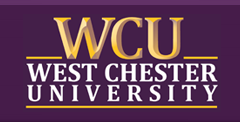Date of Award
Spring 2020
Document Type
Thesis
Degree Name
Master of Science (MS)
Department
Higher Education Policy and Student Affairs
Committee Chairperson
John Elmore, Ph.D.
Committee Member
Joseph Cicala, Ph.D.
Committee Member
Jacqueline S. Hodes, Ed.D.
Abstract
Students have been negatively impacted socially, academically and personally through the inability to provide enough nutritious meals to fuel their bodies. The higher education public system should be seen as a collaborative effort to educate institution employees on the issue of food insecurity as the first step in combating food insecurity among their local community. Creating a group of Community Advocates made up of members across the community will provide the opportunity for institutions to examine the systemic barriers put in place within higher education systems that hinder student ability to have sufficient access to food sources. I will validate the need for educating employees on food insecurity. In order to obtain this, I propose a workshop series that all employees complete to bring food security to the forefront of improving higher education for all students. Paulo Freire’s emphasis on pursuit of all humanity through eliminating oppressors drives the work within analyzing what food insecurity is and how everyone’s situation impacts an individual's ability to have adequate access to nutritious food in a different way. Baxter Magolda’s sense of community through validation is the other driving force in the way food insecurity must be looked at by readers, public higher education institutions, and community members. Historically, the problem within food insecurity was the miseducation through media creating a space where many members of society looked at food insecurity as a foreign issue or one not present in their own communities. The United States Task Force on Food Assistance implemented in the 1980’s was a positive intervention that started the conversation around food insecurity within the United States and was a group that looked to address this growing issue. Schlossberg’s Transition Model
and Kohlberg’s Theory of Moral Development inspire my intervention around education of faculty and staff within public higher education so that they can better serve their students and the local community. Relevant factors that frame my concern of food insecurity is the continued rise in not only tuition but also in the cost of living. Many members within society, including students, are unable to financially support themselves causing individuals to limit access to food in order to take care of another living expense instead. While there are many theories and influences to food insecurity it is important readers take their time to dive deeper into their personal education around the topic prior to an attempt to make a change. My hope is that this document will provide a starting opportunity for public higher education institutions to educate their campus community and for readers to start their personal education around this rising concern within society. Food insecurity has continued to be a growing topic of research and many words and terms are being used or redefined so it is important to understand what the definition of different terms are in regard to this thesis.
Recommended Citation
Assumma, Aileen, "P.E.A.R Participation, Education, Action, and Resources: Combating Food Insecurity through Collaboration" (2020). West Chester University Master’s Theses. 111.
https://digitalcommons.wcupa.edu/all_theses/111
Included in
Educational Assessment, Evaluation, and Research Commons, Educational Leadership Commons, Higher Education Commons
